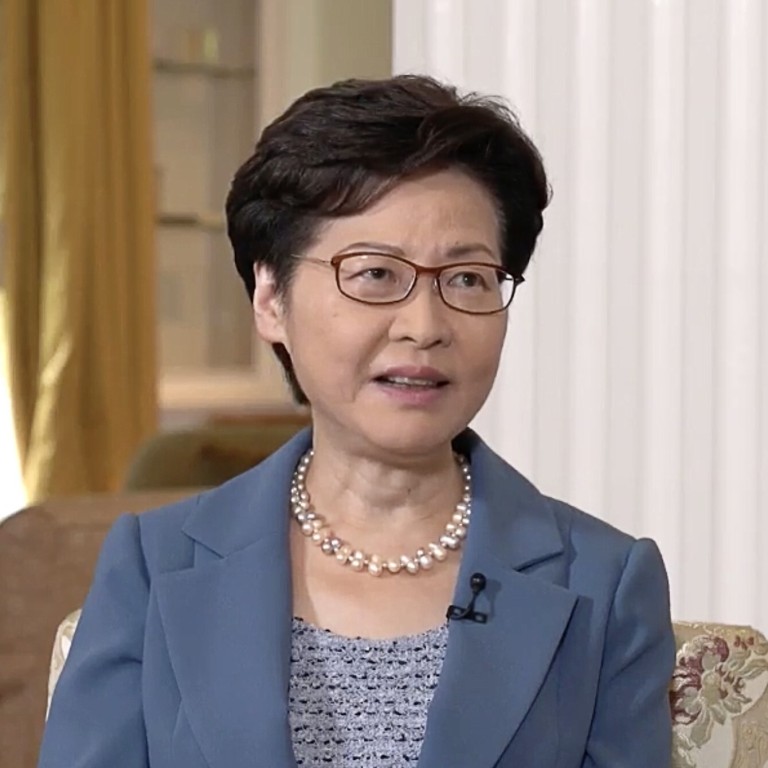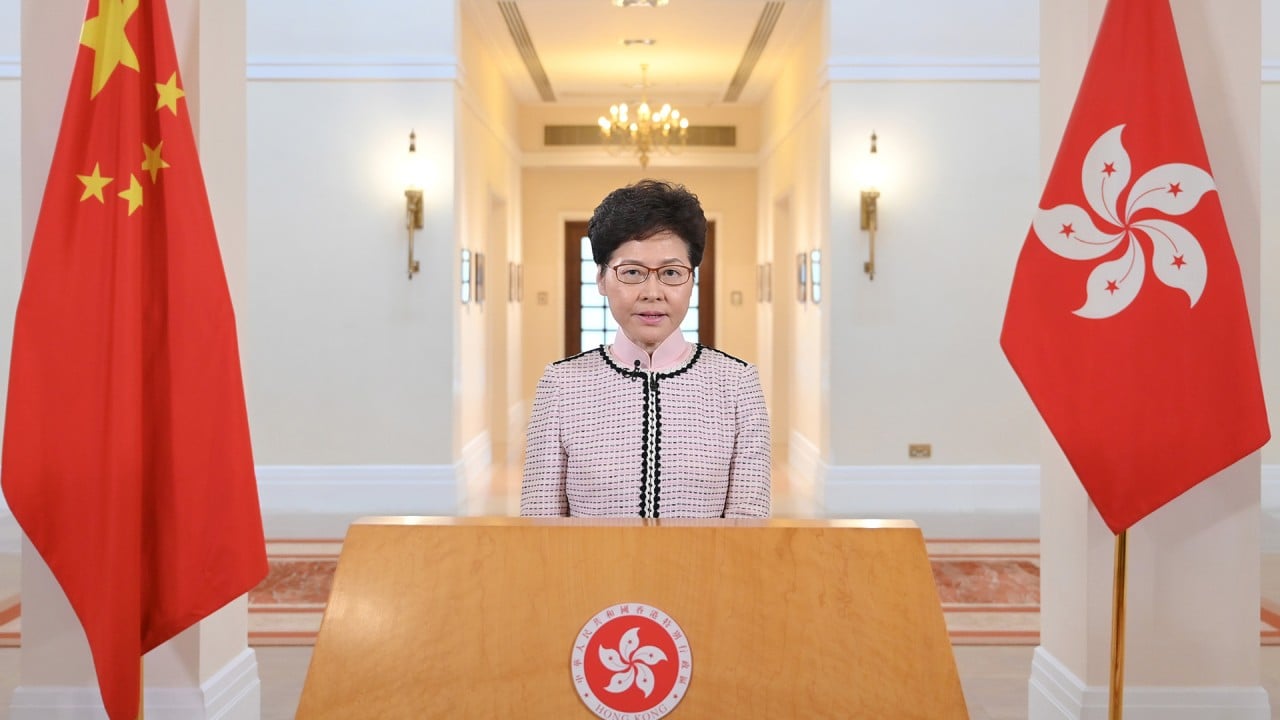
Carrie Lam’s policy pivot is too little, too late to heal Hong Kong
- The chief executive’s acknowledgement that political impasse lies at the root of Hong Kong’s many problems is startling for stating the obvious
- While some may welcome her U-turn, it’s hard to see how she can make peace with the opposition in the wake of the national security law
Without mincing words, Lam admitted bad blood between the government and the opposition was the main obstacle to solving issues such as housing. What took her so long? It’s been common knowledge since the Occupy uprising.
Lam said in the interview it would be difficult to govern Hong Kong without solving the political impasse. “So the coming policy address is inseparable from talking about politics,” she said.

03:36
Hong Kong leader forced to deliver policy address via video
Now she says the coming policy address is inseparable from talking about politics. It was far more inseparable last October, yet she separated it.
How it is possible for Lam to reconcile differences with the opposition under the shadow of the security law, which goes against everything the opposition believes in? Political reform lies at the heart of the impasse. The opposition wants Western-style democracy. The security law has made that virtually impossible.
With the security law making the political divide even greater than during last year’s protests, what does Lam mean when she says politics is inseparable from her upcoming policy speech? I don’t know, but I hope she doesn’t mean Hongkongers can forget about real democracy.

05:50
What you should know about China's new national security law for Hong Kong
I can’t see how Lam can make peace with the opposition unless Beijing agrees to revisit political reforms with an open mind despite the security law. Beijing compromising with the opposition on genuine democracy would dial down the Western narrative that China is the new enemy.
That won’t happen because Beijing believes the West is using Hong Kong to threaten national security, even though it has yet to provide any clear-cut evidence. Lam is a minor player in the great US-China game for global dominance. Yet her extradition bill, which presaged the security law, has made Hong Kong the front line of a new Cold War.
Now that the security law has put her firmly under the thumb of her Beijing bosses, how does she intend to deal with the political impasse? Hold your breath until October.
Michael Chugani is a Hong Kong journalist and TV show host

